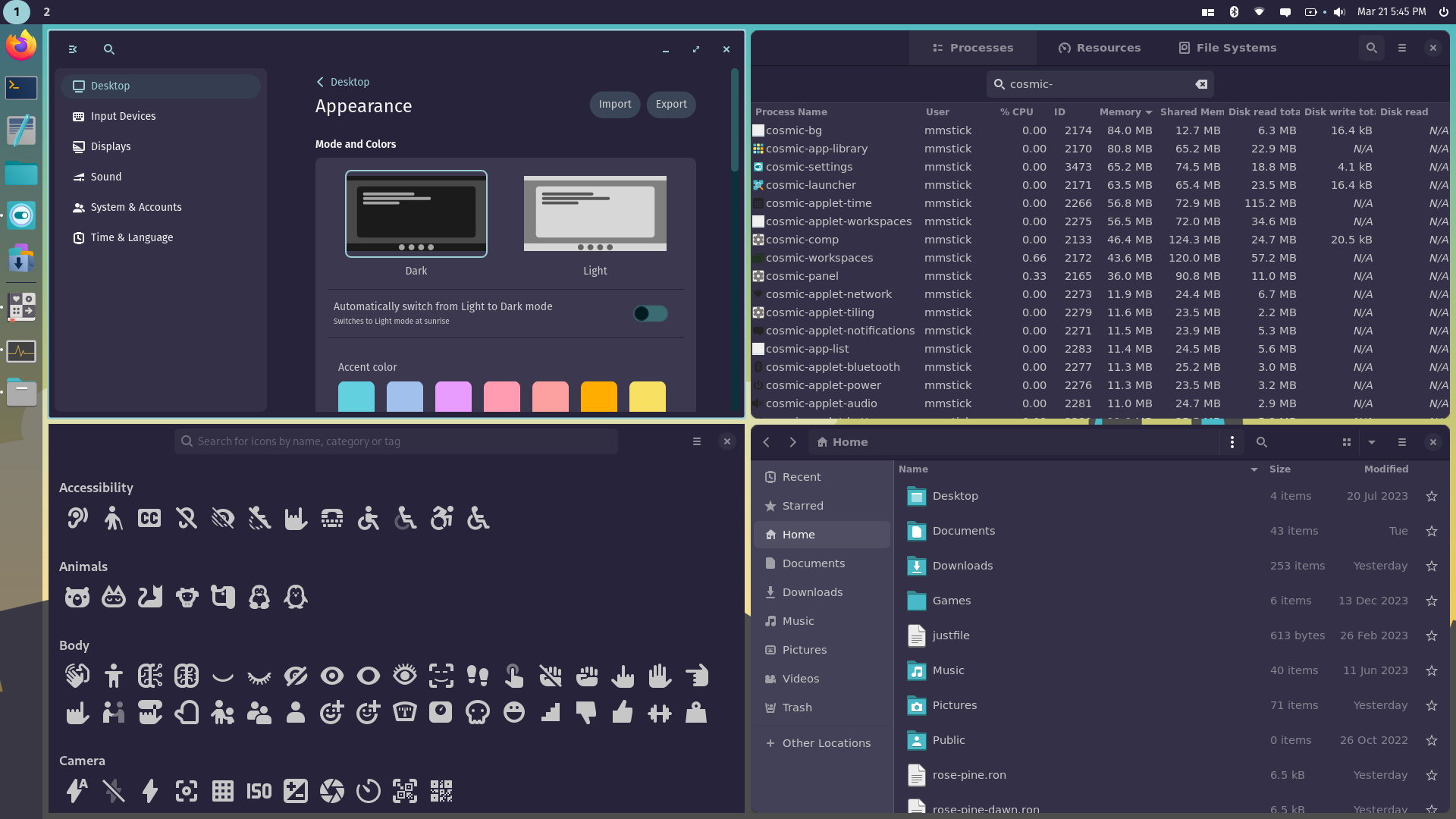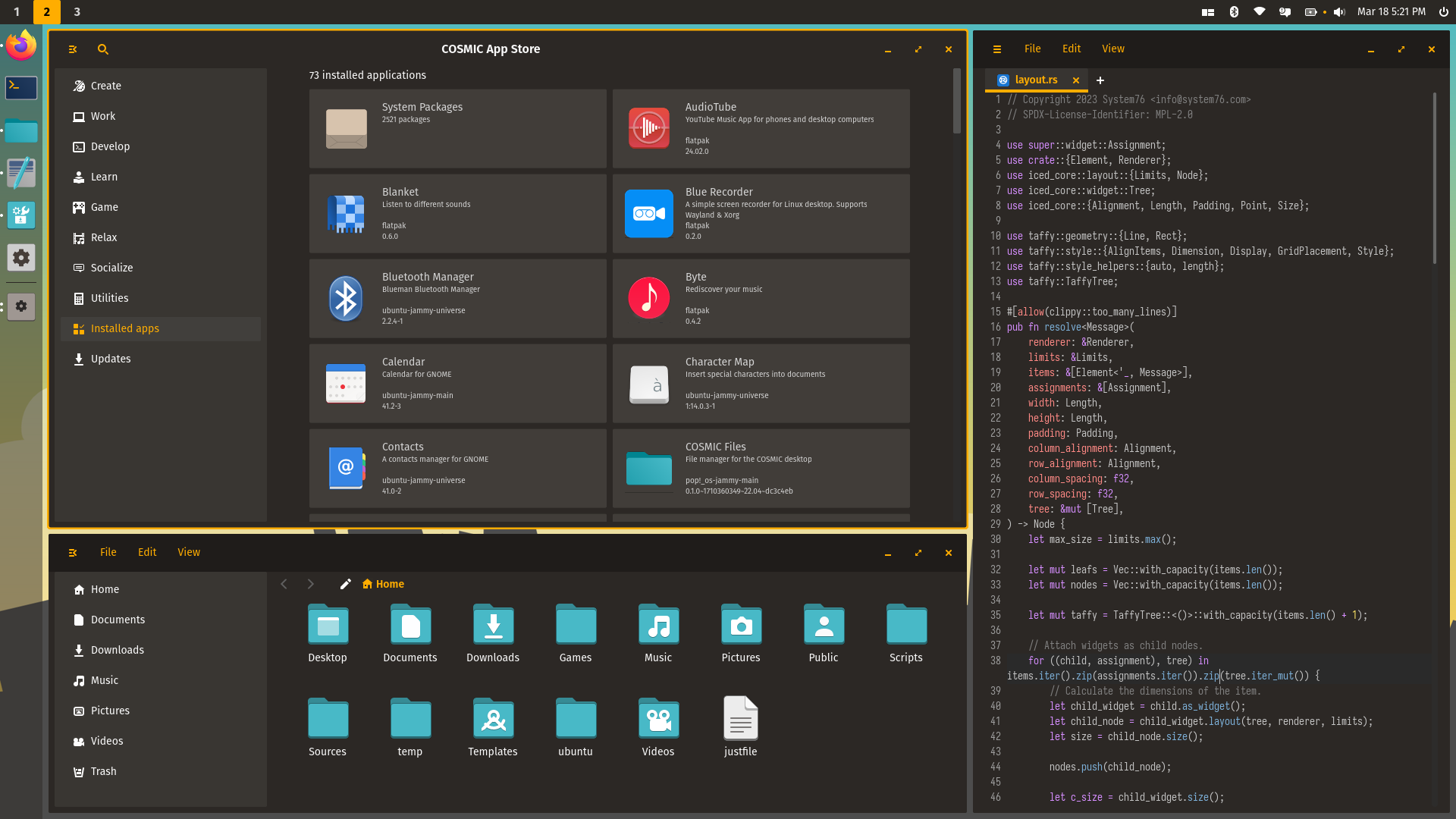In practice, because Rust libraries are always statically-linked, the MPL-2.0 is equivalent to the LGPL in spirit. Meanwhile, because of the static linking restrictions in the LGPL, the LGPL is effectively no different from the GPL. Hence, you're going to find a lot of open source copyleft projects from the Rust ecosystem preferring either GPL or MPL-2.0, where MPL-2.0 is used in libraries where LGPL would have used previously in C projects. Dynamic linking is essentially going the way of the Dodo.
The Linux kernel already allows proprietary modules via DKMS, and a handful of vendors have been using this for decades, so this is no different. Case in point: NVIDIA driver, and Android vendor drivers.
All source code in Rust is statically-linked when compiled, which thereby renders the LGPL no different from the GPL in practice. For Rust, the MPL-2.0 is a better license because it does not have the linking restriction.
Niri is also based on the smithay library we use for COSMIC, so there's some collaborative work between COSMIC and Niri on Smithay.
applets live in their own process and communicate via Wayland protocols (behind a COSMIC API)
Even better. A COSMIC API was not necessary since Wayland protocols already exist for this (layer-shell and security-context).
Because that's not how software development works, and that's not how you make progress in the field. In order for our technical vision to be integrated with an existing desktop, such as GNOME, it would have required that they give us the reigns to their project to delete their entire codebase and rebuild it into exactly what you see today in COSMIC.
As in life, sometimes you've got to demolish, pave, and build better foundations. There's a lot of cool technologies available to build a truly next-generation desktop experience in, but you're not going to get it through rigid bureaucracy and old tools. With COSMIC, we've got freedom to make decisions and build something truly unique, and we're using our talent to show you what we can do.
No, we have been making our own platform toolkit (libcosmic), which is built upon iced-rs. We are using this both for our wayland compositor applets, and our desktop applications.
As is often the case with scientific research which many people believe to be pointless, technological innovations aren't always made by achieving the end goal, but through the technologies developed to reach that goal.
Development on COSMIC Edit has lead towards improvements to the cosmic-text library, which is used by many GUI libraries in the Rust ecosystem now. Similarly, the UX designs for the text editor improves the COSMIC interface guidelines, and puts design theories to practice. Likewise, widgets that are necessary for the editor are added to the COSMIC platform toolkit, and existing widgets and features are improved to improve the development experience for applications like this.
No one would want to build applications for a platform that lacks widgets capable of properly displaying, formatting, and editing text. Many would also find it debilitating to have a desktop environment without a text editor preinstalled. Imagine if GNOME didn't have Gedit, and KDE didn't have Kate.
Besides, this is a default text editor for a desktop environment. It is really not that complex. The goal is not to develop an IDE, but a text editor that anyone would feel comfortable using as their default editor on the COSMIC platform.
This year? No. We are still working on achieving our Alpha 1 milestone.
It's not as simple as you think it is. First, we use Plausible instead instead of Google Analytics, so tracking data is not being given to Google. If the choice was purely up to System76's web team, use of Google services wouldn't be required. However, you'll be hard pressed to find any online store that accepts online payments without a captcha service, because most payment processors require it. System76's payment processor also requires it, and will not allow you to substitute your own solution or bypass that requirement. Same as said here: https://lemmy.world/comment/3137069
Customer services and other web-facing frontends are also a constant target of attacks, so a captcha service is required.


Wayland compositors use IPC over a UNIX socket to communicate with Wayland clients. To increase security and enable sandboxed applet support, COSMIC applets use the security-context protocol for their IPC connection to the compositor. To be an applet, COSMIC applications use the layer-shell protocol to behave as an applet. Neither of which were made for COSMIC. Some other Wayland compositors support these protocols. You can see which compositors support the protocols at the bottom of the wayland.app protocol pages.